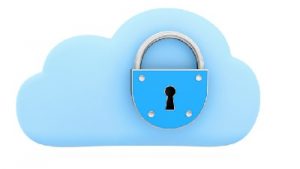
Security technology is always improving to empower users with new capabilities, to mitigate risk, secure their facilities and assets and to ensure compliance with regulations. In the access control market, new options have been introduced for presenting secure identities for authentication and to control access to facilities. In addition to the traditional ID or access card, many users can already use phones or other mobile devices, or biometrics for access control.
Cloud-based access control – another evolving technology – is also impacting the security sales channel and opening up new growth opportunities for integrators and dealers. Storing access control data in the cloud delivers a number of advantages for your customers, including physical protection, data backup and redundancy, cybersecurity and more. For a mission-critical security function like access control, the risk mitigation advantages are extremely attractive.
Research firm Gartner reports that the cloud-based security services market will reach nearly $9 billion by 2020, fueled in part, by small and midsize businesses (SMBs), as they respond to increasingly advanced security threats. The report also says cloud deployments provide opportunities to reduce costs, especially for powering hardware-based security equipment and data center floor space. For your customers, cloud availability opens up access, offers simplicity, increases efficiency and can provide economic benefits. These benefits give security administrators the ability to operate a system and receive upgrades without having to worry about staffing, servers, IT connectivity and compatibility.
Moreover, cloud-based access control is ideal for businesses with fluctuating workforces, as it offers a way to centrally manage and monitor access rights across multiple office locations. It can also reduce the cost of hardware, while saving end-users considerable internal resources with easy setup and system management. There are several options available, including a cloud-based, remote-managed system, where the end-user purchases or leases the equipment from the dealer, which the dealer then installs and provides training. The software is in the cloud and is managed – along with the supporting infrastructure – by the customer and their team.
With a cloud-based remote-managed system, when modifications are required, the integrator makes the changes, runs reports and sends them to the customer on a scheduled or as-requested basis. In this case, the integrator also handles all credentialing services.
Whatever system is chosen, on the dealer and integrator side, cloud-based access control services can be a catalyst for dealers and integrators to grow the use of access control while saving money. The RMR that a cloud access control offering can provide is a way to keep margins up and produce consistent revenue, while better servicing the customer.
For professional security integrators, one of the biggest business benefits to offering a cloud access control system is the opportunity to create RMR, which will enable more reliable budget planning and resource allocation. Beyond that, having the constant source of income can help integrators take advantage of other financial resources from organizations that use RMR as a basis for valuation.
Dealers and integrators in the access control space have historically had limited options when it came to their RMR opportunities. Adding hosted, managed and monitored service options is one way to provide valuable ongoing service options for customers.
There are several benefits for dealers to sell cloud-based access control:
1. Reduced costs. In the past, access control servers had to be hosted, and with that came an investment in infrastructure. In most cases, successful dealers were the ones with central stations who had the equipment, bandwidth and other financial and operational resources to support these service offerings. Now, cloud-based services enable dealers make the offering without having to make significant up-front investment.
2. Reduced training. Dealers and integrators do not need an established level of proficiency with multiple levels of software. It is no longer a requirement for a technician to learn numerous software systems in order to provide a high level of service.
3. Service contract additions. A cloud access control solution gives dealers the ability to reach the customer in multiple ways through the addition of services, which benefits the end-user in terms of increased security, but also increases the potential RMR. Additional billings cover items such as managed services, hosted services, monitored services or video monitoring, or even contract badging services.
4. Remote support. The option to remotely provide support on a monthly basis is another option to provide dealers with an additional revenue stream without having to leave the office. System function adjustment, including adding, modifying and deleting users, assigning individual access levels, programming scheduled door locking and unlocking, in addition to other vital access control actions for the end-user can be performed remotely, which helps to keep down service costs to customers.
Specific monthly services that a cloud access control solution can provide include the ability to search, enroll and maintain cardholders as well as set access privileges; door control, where security operators can pulse doors and override door lock and unlock schedules; employee and contractor access groups, where user permissions can be defined; time schedules, where an end-user can control door schedules or cardholder access by adding or modifying; and holiday situations, for security and authorized users to grant access to doors or users by adding or modifying holidays dates and times.
5. Easy installation and maintenance. A cloud access control solution is not only easier to install, but it is often very simple to maintain and update. Software providers regularly release updates that improve the functionality and security of the solutions. Under a hosted access control model, dealers can help security professionals manage those updates and other system functions remotely, without disrupting the access control system’s operation, and without having to deploy staff – especially during off hours – to the customer location. Both monthly and regular software upgrade services are other ways to open up additional RMR opportunities.











